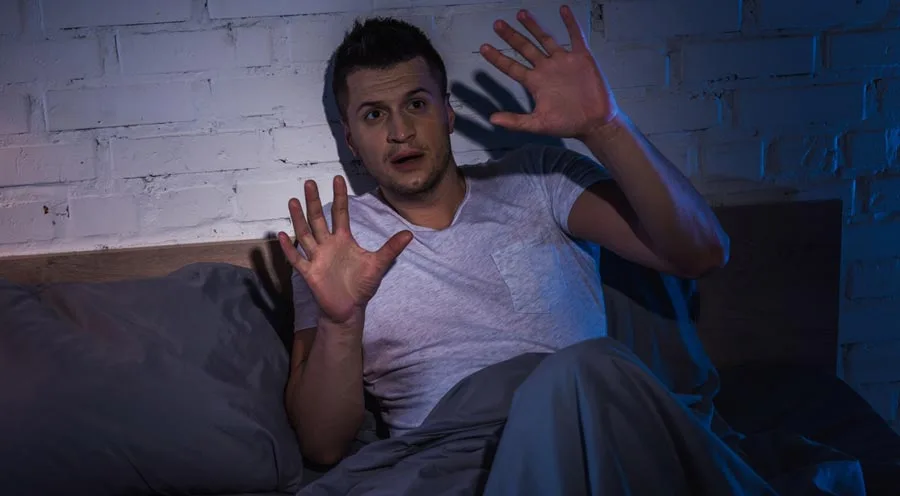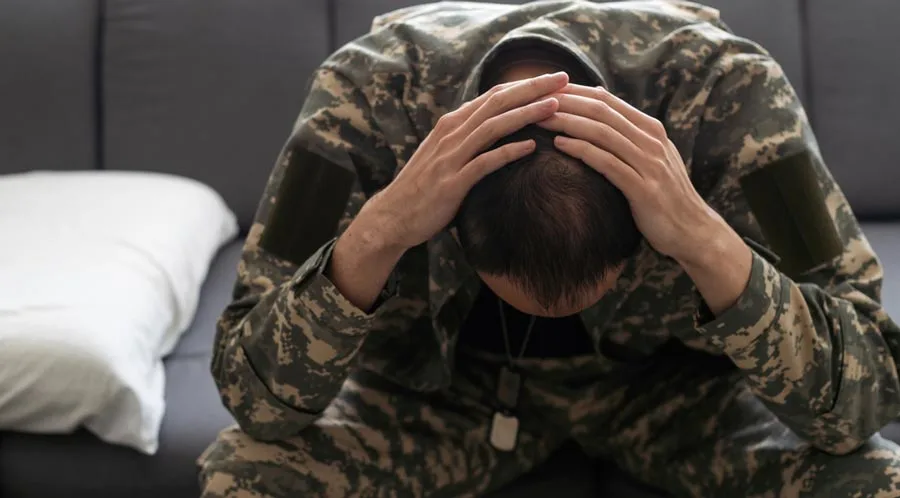Getting Answers and Trauma Support Resources from Catalina
Experiencing a traumatic event can radically change how you view the world around you. Post-traumatic stress disorder is a serious condition, but some people wonder if they truly have it. If someone does not experience flashbacks, they might wonder if they have PTSD.
As a treatment center that helps many clients overcome trauma, we will answer: Can you have PTSD without flashbacks? As well as cover related issues, and do our best to guide those struggling to support and effective resources.
Catalina Behavioral Health offers help in dealing with your mental health and emotional distress. From inpatient treatment to partial hospitalization and outpatient, we offer solutions to anyone who needs help dealing with the fallout of traumatic memories.
Please keep reading to get detailed answers, and our team at Catalina would be honored if you chose to reach out and entrust your or your loved one’s treatment to us.
Get Immediate Support With Trauma and PTSD Treatment – Call Us Now!
Symptoms of Post-Traumatic Stress Disorder After a Traumatic Event
Generally speaking, PTSD symptoms tend to surface within about three months of experiencing any traumatic events. However, you might experience a delayed onset of your post-traumatic stress disorder so be attuned to the following symptoms.
To be diagnosed with PTSD, adults must experience symptoms from each category of the below for a minimum of one month. The symptoms of your PTSD must interfere with the ability to live your everyday life at home and in the community and also affect your relationships with others.
If you find that the symptoms below accurately describe your situation, contact our mental health professionals at Catalina – we can diagnose and assist you in coping with your traumatic memories.
Re-experiencing Symptoms of Traumatic Events

This category is the first one many people think of when they find themselves coping with traumatic events. You must experience at least one of the following symptoms which can be triggered by just about anything in your day-to-day life.
Re-experiencing symptoms include:
- Flashbacks (which can include physical reactions to triggers of the traumatic event)
- Recurring dreams or nightmares about the events
- Recurring memories
- Distressing thoughts or emotional flashbacks
- Physical reactions to trauma triggers
Keep in mind that you only need one of these symptoms. For many people, flashbacks are prominent and are enough to hinder their ability to live their lives. However, flashbacks (or even emotional flashbacks) don’t need to be a defining symptom of PTSD. As you see here, there are alternative criteria you may be able to meet to still receive this same diagnosis.
Avoidance of Traumatic Memories
In addition to the re-experiencing symptoms, you must also struggle with at least one area in this category. These symptoms can include going to great lengths to avoid situations, people, places, events, or things that remind you of the traumatic event. Maybe you no longer go to the same places where you used to hang out or spend time with the same people.
It can also be more emotional, avoiding any situation or conversation that might force you to relive the emotional experience or thoughts surrounding the event.
The idea here is that if you avoid situations that remind you of your intrusive memories, you may be able to avoid uncomfortable scenarios. If these descriptions resonate with you, you may have at least one symptom in this category.
Avoidance can also be a hard-to-explain symptom that arises with CPTSD, or complex PTSD. This form of trauma involves layered childhood traumatic experiences alongside adult trauma exposure and typically arises from repeated events rather than a single instance.
Arousal and Reactivity Symptoms
After flashbacks, these tend to be the most well-known PTSD symptoms. While the previous two sections required only one symptom, this category requires you to have two or more symptoms that dramatically impact your mental health.
Here are the six signs you may need PTSD treatment:
- Increased startle reflex
- Tense feelings or feeling on edge
- Difficulty concentrating
- Difficulty sleeping or staying asleep
- Irritability, anger, or aggression
- Risky or destructive behavior
The surprising news is that these PTSD symptoms are unlikely to come and go. Instead, they happen at all times. It is these symptoms that lead most people to believe they have mental illnesses, and they may not immediately pinpoint them as PTSD without the intrusive memories. They seriously interfere with your day-to-day life and can require inpatient PTSD treatment to fully overcome.
Cognition and Mood Symptoms: Emotional Distress with PTSD

This category is also mandatory for those who are seeking help with PTSD symptoms. You must have at least two symptoms from the cognition and mood category, though many people who enter into PTSD treatment will exhibit more than just two.
Take a look at this list and see if any descriptions match your inner turmoil:
- Difficulty remembering the details of the traumatic event
- Negative beliefs about self or the world
- Desire to blame yourself or others for what transpired
- Continuous negative emotions like guilt, anger, or fear
- Lack of interest in hobbies or pleasurable activities
- Social isolation (real or perceived)
- Challenges feelings positive emotions
As you can tell, these common symptoms typically align with other mental illnesses that can co-occur with PTSD such as anxiety or depression. Intense emotions are very common during the healing process, so be patient with yourself as you work through them with a mental health professional.
Confidential Trauma and Mental Health Assessment – Call Now!
Can You Have PTSD Without Flashbacks?
With the groundwork in place for who meets the threshold for a PTSD diagnosis, this primary question comes back to remind us that everyone’s experience can be unique. Intrusive memories are a common symptom of this mental health condition following a traumatic event.
However, do you really need to have a flashback to seek help?
The answer is no, flashbacks to such events are not required to seek help or to officially be diagnosed with PTSD. This is a common misconception that prevents many people from reaching out for help because they feel their situation is not as serious without flashbacks.
Our ‘Do I have trauma‘ self-assessment tool can provide an informal starting point that sheds light on these issues and provides a range of symptoms that can be looked at.
As long as you have at least one re-experiencing symptom, you can qualify for a PTSD diagnosis and start seeking help for your negative beliefs and intense emotions. If you have dreams or nightmares about your trauma, emotional flashbacks, or physical reactions to trauma triggers, you can forgo the flashback symptom.
What About Emotional Flashbacks?
Sometimes, people who have symptoms of PTSD may not have the stereotypical flashbacks we most often associate with the diagnosis. In fact, you and others, even at your workplace may face PTSD in silence daily.
Instead of the traumatic event playing through your mind like a movie, you might experience more emotional distress. What does an emotional flashback look like?
In essence, it boils down to experiencing the same intense emotions you felt when the event took place. You might feel overwhelming fear, guilt, shame, or despair.
The problem is that you may think you are experiencing these feelings about an event that is happening in real-time. For example, you might feel a certain way about an interaction with a coworker or are triggered by a fight with your spouse or partner. However, you will be responding to the traumatic event that triggered these feelings in you.
This is particularly true for those who have the clear symptoms of complex PTSD. As touched on previously C-PTSD occurs when you have been exposed to ongoing trauma such as domestic violence. Because there is not one single event that occurred to spark the diagnosis, emotional upheaval is more common.
Should You Seek Treatment for PTSD Without Flashbacks?

Whether you experienced sexual assault, domestic violence, a car accident, or some other threatening scenario, you are worthy of receiving help for your healing journey. You will need help for your healing journey. Many times, people who have PTSD without flashbacks feel that their condition is not serious enough to warrant getting treatment.
This could not be further from the truth.
Receiving treatment as early as possible gives you the best possible outcome for the healing process. Always consider looking for a mental health professional like those available at Catalina Behavioral Health who have the targeted experience to assist with all symptoms of PTSD.
Receive a Diagnosis for Symptoms of PTSD
The first reason you should seek treatment for PTSD without flashbacks is to receive an accurate diagnosis. Without this telltale sign, it can be hard to pinpoint the struggles you face with a trauma memory. Receiving a diagnosis is an important validation for you, letting you know that it is okay to struggle with these events.
It is also an important step in receiving treatment for your post-traumatic stress disorder. It can indicate specific therapies that are best suited to your trauma, such as Eye Movement Desensitization and Reprocessing (EMDR) or trauma-focused cognitive behavioral therapy.
In other words, you cannot get help until you know what the problem is.
Learning New Coping Strategies in Therapy
Once a therapist or counselor is clear that you are experiencing the fallout of a traumatic event, they can help you learn new coping strategies that make it possible for you to repair the fissures in your personal and professional lives that PTSD caused.
Coping skills are a great way to build resilience in your life, support your healing journey, and empower you to move forward with your life regardless of what happened in the past.
If you want to move forward from a traumatic event, you need to know how to cope with the symptoms that present themselves, even if it is not a flashback. The emotional and cognitive symptoms of PTSD can be disabling, and are just as serious as flashbacks. They certainly warrant some attention to finding coping strategies that work for you, your personality, and your trauma.
Forms of Medications That Can Be Helpful for PTSD

For those who have serious difficulty in coping with their daily lives, it might be time to consider seeking help from an experienced psychiatrist who can prescribe medications that assist with PTSD symptoms. These medications can take the edge off of emotional symptoms and make it easier to cope, even if you don’t have flashbacks.
How can prescriptions help your experience of PTSD symptoms?
There is some evidence that trauma causes actual changes in the brain, namely to the neurotransmitter levels. These are found to be quite different in people who struggle with any form of PTSD compared to those who do not have a background of traumatic memories.
Selective serotonin reuptake inhibitors (SSRIs) and serotonin-norepinephrine reuptake inhibitors (SNRIs) are the only medications proven to improve symptoms of PTSD. Specifically, there are three medications (available in both generic and name brand) that psychiatrists often prescribe to help with the fallout of a traumatic event:
- Sertraline or Zoloft
- Paroxetine or Paxil
- Venlafaxine or Effexor
Licensed Mental Health Treatment – Call Now!
Can PTSD Occur Without Knowing It?
Whether you have experienced sexual violence, domestic violence, or trauma during your time as a soldier, there are times when PTSD surfaces and you may not even realize it. Especially if you do not have flashbacks that clue you into the importance of a traumatic event, PTSD can be insidious.
Traumatic memories are stored differently, and it may be difficult for you to access memories in the present moment. These upsetting memories may not surface in the form of flashbacks or intrusive thoughts, but they can impact your day-to-day life just the same.
An inability to remember exactly what happened to you is a common trait of PTSD, though it is a bit harder to understand, diagnose, and treat when this occurs. All it takes is some threat to your life or overall well-being, and the brain might store that memory to hold onto for the future.
As a result, you may experience mood symptoms related to PTSD, even if you never remember your personal experiences.
Seeking Help for Other Symptoms of PTSD
Even if you have no flashbacks that force you to re-experience the trauma in the present moment, you still may need treatment. Catalina Behavioral Health offers every level of treatment you may need, including different treatment modalities to suit every client individually.
You don’t have to suffer by feeling this way entirely on your own. Allow our experienced treatment team to educate you on common symptoms of PTSD and help you, the same way we would if you were having intense flashbacks, depression, or nightmares.
We can offer both cognitive and dialectical behavior therapy to give you all of the skills you need to address your emotional suffering. Sessions are offered in both individual and group settings so that you can connect with peers who may face similar issues.
Levels of Treatment for the Common Causes of PTSD

When you are experiencing severe symptoms of post-traumatic stress disorder, even if you are not having flashbacks, you may benefit first from inpatient treatment. This allows you to rest comfortably in our care 24/7 which can be important if you are at risk of self-harm. You will be safe within our facility while you get the help you need to return to your daily life.
We can help you decide what level of therapy is the right fit for you so that you can get the help you need. Not everyone requires a more restrictive level of care, but it can be helpful to jumpstart your recovery with inpatient treatment (especially if you are using substances and need to detox first).
After graduating from inpatient treatment, you may segue into partial hospitalization or intensive outpatient treatment. Partial hospitalization offers a greater degree of support, but intensive outpatient still offers a robust treatment program with several hours of therapy each week.
Both PHP and IOP allow you to come and go from the facility between appointments, permitting you to spend time with loved ones and to sleep in your usual bed at night.
We Accept Most Major Insurance Providers – Call Now!
Get Help for PTSD at Catalina Behavioral Health
Are you ready to stop feeling like your disorders are taking over your life and your relationships? You do not have to suffer endlessly when you contact Catalina Behavioral Health for assistance with your PTSD. Even if you never have a single flashback, we can get you into the therapy that will make a difference for your brain and mood issues such as depression.
We believe that every person is unique and tailor our approach to your individual needs. Reach out to our warm and welcoming admissions staff today to learn more about how we can assist you on the first steps toward healing from a traumatic event!
References
- U.S. Department of Health and Human Services. Post-traumatic stress disorder. National Institute of Mental Health.
- Sullivan, T. P., Weiss, N. H., Price, C., Pugh, N., & Hansen, N. B. (2018). Strategies for coping with individual PTSD symptoms: Experiences of African American victims of intimate partner violence. Psychological trauma : theory, research, practice and policy, 10(3), 336–344.
- U.S. Department of Veteran Affairs. (2018, August 8). Medications for PTSD.





